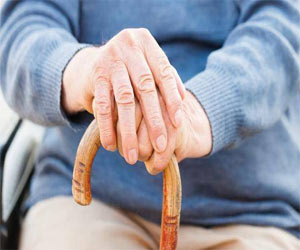- Home
- Editorial
- News
- Practice Guidelines
- Anesthesiology Guidelines
- Cancer Guidelines
- Cardiac Sciences Guidelines
- Critical Care Guidelines
- Dentistry Guidelines
- Dermatology Guidelines
- Diabetes and Endo Guidelines
- Diagnostics Guidelines
- ENT Guidelines
- Featured Practice Guidelines
- Gastroenterology Guidelines
- Geriatrics Guidelines
- Medicine Guidelines
- Nephrology Guidelines
- Neurosciences Guidelines
- Obs and Gynae Guidelines
- Ophthalmology Guidelines
- Orthopaedics Guidelines
- Paediatrics Guidelines
- Psychiatry Guidelines
- Pulmonology Guidelines
- Radiology Guidelines
- Surgery Guidelines
- Urology Guidelines
Identification and Management of Physical Frailty in elderly: ICFSR Guidelines

The task force of the International Conference of Frailty and Sarcopenia Research (ICFSR) have developed clinical practice guidelines to provide recommendations for the identification and management of frailty in older adults.These recommendations focus on the clinical and practical aspects of care for older people with frailty and promote person-centered care.The new guidelines have been published in the Journal of nutrition, health & aging.
Recommendations for Screening and Assessment
The task force recommends that health practitioners case identify/screen all older adults for frailty using a validated instrument suitable for the specific setting or context (strong recommendation). Ideally, the screening instrument should exclude disability as part of the screening process. For individuals screened as positive for frailty, a more comprehensive clinical assessment should be performed to identify signs and underlying mechanisms of frailty (strong recommendation).
Recommendations for Management
A comprehensive care plan for frailty should address polypharmacy (whether rational or nonrational), the management of sarcopenia, the treatable causes of weight loss, and the causes of exhaustion (depression, anemia, hypotension, hypothyroidism, and B12 deficiency) (strong recommendation). All persons with frailty should receive social support as needed to address unmet needs and encourage adherence to a comprehensive care plan (strong recommendation). First-line therapy for the management of frailty should include a multi-component physical activity programme with a resistance-based training component (strong recommendation). Protein/caloric supplementation is recommended when weight loss or undernutrition are present (conditional recommendation). No recommendation was given for systematic additional therapies such as cognitive therapy, problem-solving therapy, vitamin D supplementation, and hormone-based treatment. Pharmacological treatment as presently available is not recommended therapy for the treatment of frailty.
Following are the major recommendations:
- All adults aged 65 years and over should be offered opportunistic screening for frailty using a simple, validated frailty instrument suitable to the specific setting or context.
- Clinical assessment of frailty should be performed for all older adults screening as positive for frailty or pre-frailty.
- A comprehensive care plan for frailty should systematically address: polypharmacy, the management of sarcopenia, treatable causes of weight loss, and the causes of exhaustion (depression, anaemia, hypotension, hypothyroidism, and vitamin B12 deficiency).
- Where appropriate, persons with advanced (severe) frailty should be referred to a geriatrician.
- Older people with frailty should be offered a multi-component physical activity programme (or those with pre-frailty as a preventative component).
- Health practitioners are strongly encouraged to refer older people with frailty to physical activity programs with a progressive, resistance-training component.
- Protein/caloric supplementation can be considered for persons with frailty when weight loss or undernutrition has been diagnosed.
- Health practitioners may offer nutritional/protein supplementation paired with physical activity prescription.
- Advise older adults with frailty about the importance of oral health.
- Pharmacological treatment as presently available is not recommended therapy for the treatment of frailty.
- Vitamin D supplementation is not systematically recommended for the treatment of frailty unless vitamin D deficiency is present.
- Cognitive or problem-solving therapy is not systematically recommended for the treatment of frailty.
- Hormone therapy is not recommended for the treatment of frailty.
- All persons with frailty should be offered social support as needed to address unmet care needs and encourage adherence to the Comprehensive Management Plan.
- Persons with frailty can be referred to as home-based training.
For more details click on the link https://doi.org/10.1007/s12603-019-1273-z

Disclaimer: This site is primarily intended for healthcare professionals. Any content/information on this website does not replace the advice of medical and/or health professionals and should not be construed as medical/diagnostic advice/endorsement or prescription. Use of this site is subject to our terms of use, privacy policy, advertisement policy. © 2020 Minerva Medical Treatment Pvt Ltd